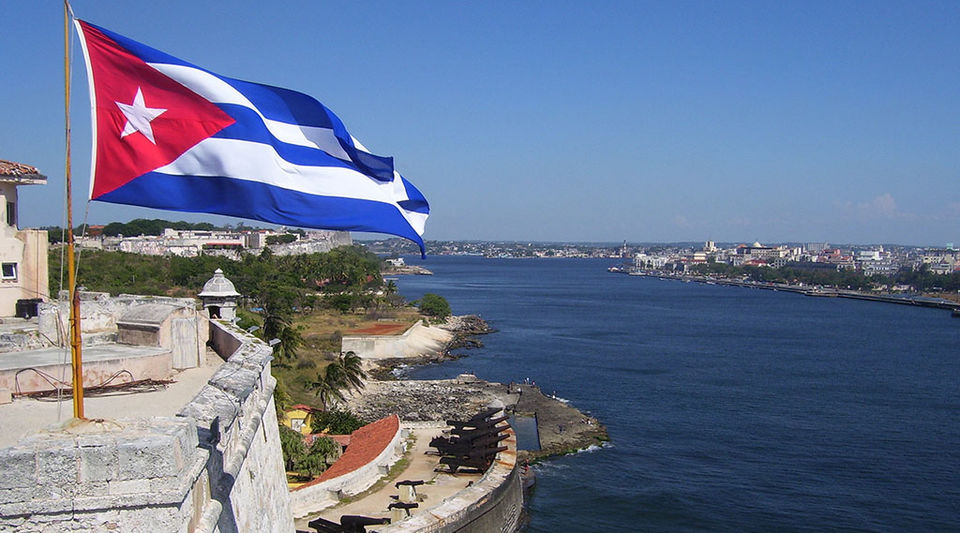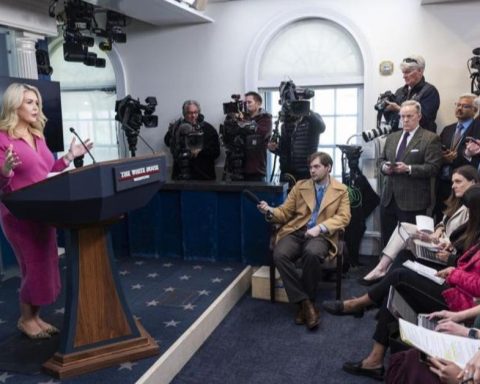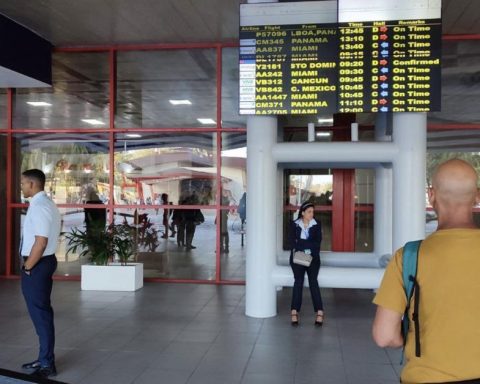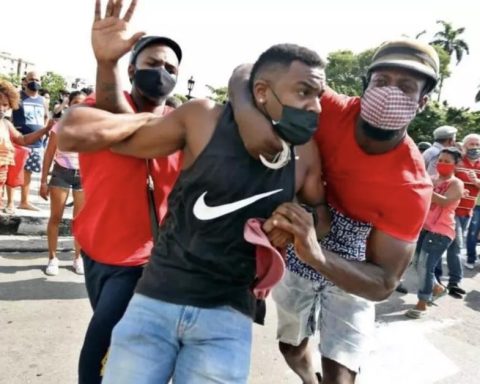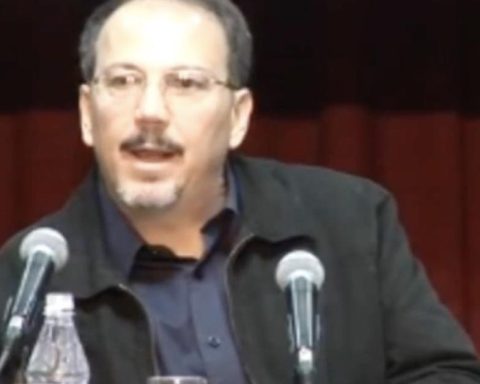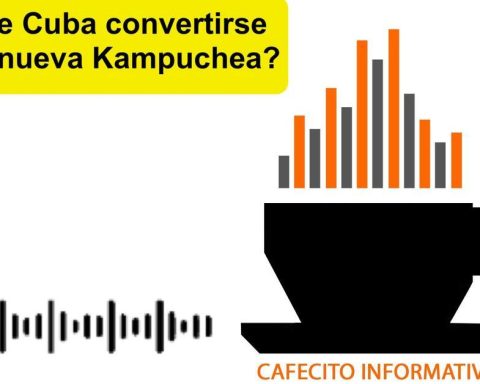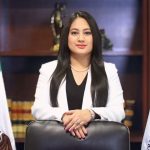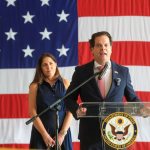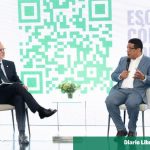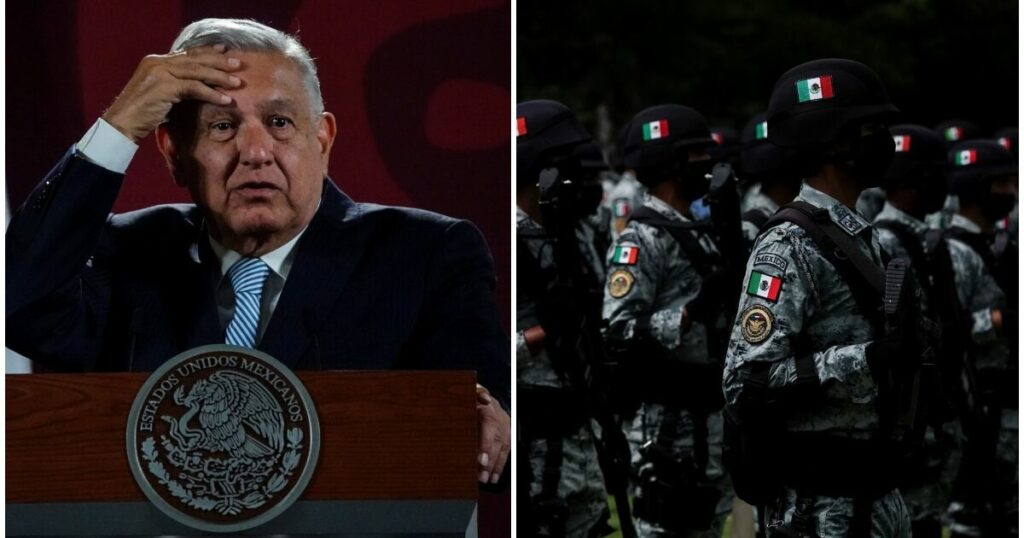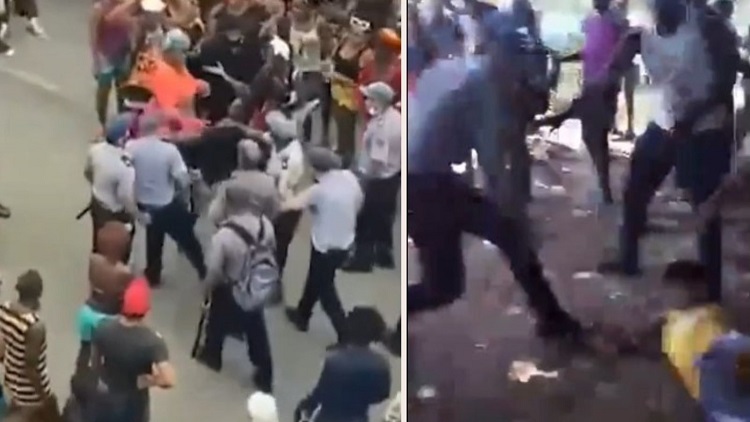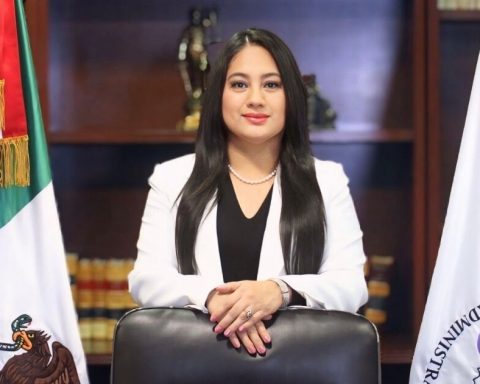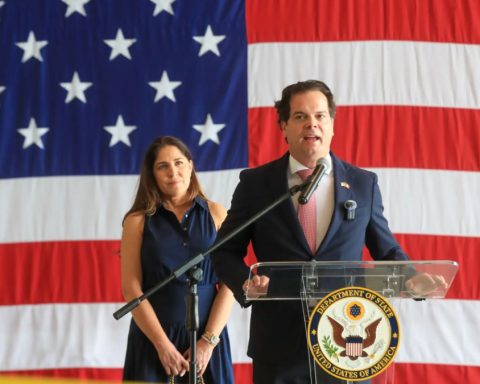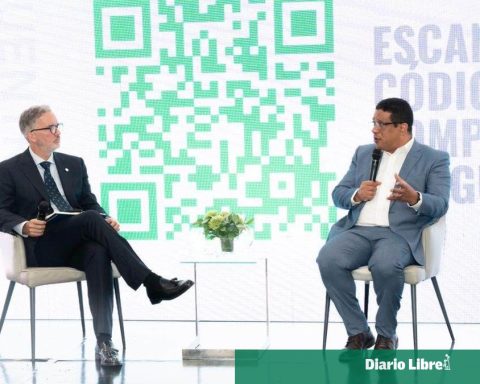Members of the Cuban opposition inside and outside of Cuba announced their support for D Frente, a group of “coordination of plural Cuban civil and political actors, whose main objective is to achieve the refoundation of the Republic, guided by Martí’s idea of building a country ‘with everyone and for the good of all'”. This is how the group is defined in a message made public this Wednesday through their Facebook page in which they have informed the public about their foundation.
The organizations united on this front and their representatives are Luis Rodríguez Pérez, from the Association of Mothers and Relatives of Political Prisoners for Amnesty; Ileana de la Guardia, from the Council for the Democratic Transition in Cuba; Enrique Guzmán Karell, from the Center for Studies on the Rule of Law and Public Policies Cuba Próxima; Yunior García, from Archipelago; Jorge Masetti, from the French Association for Democracy in Cuba; and Yanelys Núñez, from the San Isidro Movement.
D Frente highlights in its statement that it considers “democracy and the rule of law” as “the best way to achieve inclusion, political pluralism, the sovereignty of citizens and civilized rules of coexistence”
D Frente highlights in its statement that it considers “democracy and the rule of law” as “the best way to achieve inclusion, political pluralism, the sovereignty of citizens and civilized rules of coexistence.”
The document made public yesterday by D Frente establishes five fundamental ideas in its roadmap: amnesty for political prisoners and decriminalization of dissent; the work for the full recognition of popular sovereignty and the end of the Communist Party as the only and leading force in society; the search for the effective rights of free expression, information, press, demonstration and meeting, among others; the promotion of a new electoral law and the creation of legal, institutional, civic and cultural conditions that favor the calling of a constituent process.
In addition, the front proposes holding a plebiscite “so that the people, in the exercise of popular sovereignty, decide.”
The group initially establishes its principles, which are summarized in respect for the full dignity of the person and human rights; the condemnation of all forms of violence, including that of the State; the promotion of pluralist dialogue and national reconciliation; commitment to peaceful actions of social and political activism, resistance and negotiation; respect for all political, ideological, creed, religion and identity trends; respect for national sovereignty, non-interference and rejection of unilateral actions contrary to international law.
The new platform maintains that it is necessary and urgent to recover the republican project in the face of an authoritarian regime that is indolent in the face of poverty, exclusion and violence, and for this it has appointed a Provisional Coordinating Committee that must prepare the proposal for statutes, actions envisaged in a roadmap and other operational issues. The members are Elena Larrinaga, Manuel Cuesta Morúa, Boris González Arenas and Michel Fernández.
Yunior García Aguilera, one of the signatories on behalf of the Archipelago, tells 14ymedio that the initiative is still in a very preliminary phase and work remains to be done, but that he joined the project because of his comprehensive vision. “What I find interesting is the breadth it has, with a wide range to one side and the other of the spectrum [ideológico] and, above all, because I think that the strategy for how to achieve these objectives is a little clearer inside.”
“What I find interesting is the breadth it has, with a wide range to one side and the other of the spectrum [ideológico] and, above all, because I think that the strategy for how to achieve these objectives is a little clearer inside”
Aware that there have been and are many democratizing political initiatives, some even with the same members, García points out that this proposal has “an intention of balance, objectivity and the search for realistic strategies to achieve democracy in Cuba. We’ll see what happens, it’s It is better that there are four or five attempts at agreement than none, but it remains to be seen, we have to work”, adds the playwright, currently in exile in Madrid.
At the time the manifesto was published, almost 150 people had signed their adhesion, among them historical opponents, members of the San Isidro Movement and 27N, and a multitude of relatives of prisoners of 11J. Among some of the best known are José Daniel Ferrer, leader of the Patriotic Union of Cuba, and the opposition figure, Félix Navarro, both in prison since July 11, 2021. In addition, there are plastic artists such as Julio Llópiz-Casal and Hamlet Lavastida; the émigré historian Julio Antonio Fernández Estrada and the economist Elías Amor, among many others. On a personal basis, different anonymous people have shown their support for the front.
The birth, however, has not been without controversy. Hours after the text was released, Salomé García Bacallao, from the Justicia 11J organization, called for the inclusion of the signature of four relatives of political prisoners who, in his opinion, had not wanted to appear on the list. D Frente claims to have received the Amnesty list from the Association of Mothers and Relatives of Political Prisoners, although a user, the father of an incarcerated person, requests information about that group that he claims to be unaware of.
________________________
Collaborate with our work:
The team of 14ymedio is committed to doing serious journalism that reflects the reality of deep Cuba. Thank you for joining us on this long road. We invite you to continue supporting us, but this time becoming a member of our newspaper. Together we can continue transforming journalism in Cuba.
